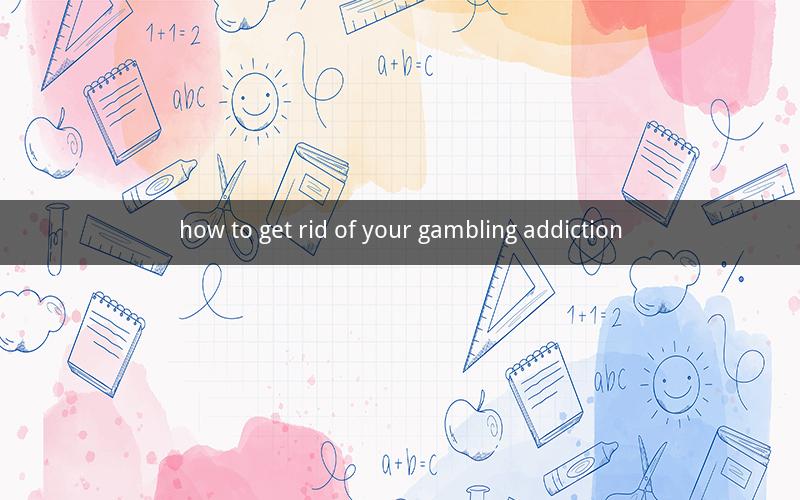
How to Get Rid of Your Gambling Addiction: A Comprehensive Guide
Table of Contents
1. Understanding Gambling Addiction
2. Signs and Symptoms of Gambling Addiction
3. The Impact of Gambling Addiction
4. Causes of Gambling Addiction
5. Recognizing the Need for Change
6. Seeking Professional Help
7. Building a Support System
8. Developing Coping Strategies
9. Financial Management and Budgeting
10. Lifestyle Changes for Recovery
11. Staying Sober and Maintaining Sobriety
1. Understanding Gambling Addiction
Gambling addiction, also known as problem gambling or compulsive gambling, is a behavioral addiction characterized by an irresistible urge to gamble despite negative consequences. It is a complex condition that affects both the individual and their loved ones. Understanding the nature of gambling addiction is the first step towards overcoming it.
2. Signs and Symptoms of Gambling Addiction
Identifying the signs and symptoms of gambling addiction is crucial for early intervention. These may include:
- Preoccupation with gambling thoughts
- Needing to bet more money to achieve the same thrill
- Feeling restless or irritable when unable to gamble
- Lying to hide gambling activities
- Risking or losing relationships, job, or education
- Continuing to gamble despite financial, legal, or personal problems
3. The Impact of Gambling Addiction
Gambling addiction can have severe consequences on various aspects of life, including:
- Financial instability
- Relationship problems
- Legal issues
- Mental health issues such as depression and anxiety
- Physical health problems
4. Causes of Gambling Addiction
Several factors can contribute to the development of gambling addiction, including:
- Genetic predisposition
- Environmental influences, such as exposure to gambling at a young age
- Psychological factors, such as low self-esteem or a need for excitement
- Social factors, such as peer pressure or a desire to fit in
5. Recognizing the Need for Change
Acknowledging that there is a problem and recognizing the need for change is the first step towards recovery. This involves:
- Accepting that gambling has become a harmful behavior
- Admitting the negative consequences of gambling
- Committing to change and seeking help
6. Seeking Professional Help
Professional help is essential for overcoming gambling addiction. This may include:
- Counseling or therapy, such as cognitive-behavioral therapy (CBT)
- Support groups, such as Gamblers Anonymous
- Residential treatment programs
- Medication, in some cases
7. Building a Support System
A strong support system can significantly aid in recovery. This may involve:
- Sharing your struggles with trusted friends and family
- Joining a support group for individuals with gambling addiction
- Engaging in activities that promote a healthy lifestyle
8. Developing Coping Strategies
Developing healthy coping strategies can help reduce the urge to gamble. These may include:
- Engaging in hobbies and activities that provide enjoyment and fulfillment
- Practicing relaxation techniques, such as meditation or deep breathing
- Establishing a routine and structure in daily life
9. Financial Management and Budgeting
Addressing financial issues is a critical aspect of recovery. This involves:
- Creating a budget to manage income and expenses
- Seeking financial counseling or therapy
- Selling or getting rid of gambling-related items
10. Lifestyle Changes for Recovery
Lifestyle changes can support long-term recovery. These may include:
- Limiting exposure to gambling environments and stimuli
- Developing healthy habits, such as regular exercise and a balanced diet
- Setting goals and celebrating achievements
11. Staying Sober and Maintaining Sobriety
Maintaining sobriety is essential for long-term recovery. This involves:
- Continuing to seek support and attend meetings
- Being aware of triggers and developing strategies to avoid them
- Practicing self-compassion and patience
Questions and Answers
1. What is the most effective treatment for gambling addiction?
- The most effective treatment for gambling addiction varies from person to person. A combination of therapy, support groups, and lifestyle changes often yields the best results.
2. Can gambling addiction be cured?
- While there is no cure for gambling addiction, it can be effectively managed through treatment and ongoing support.
3. How long does it take to recover from gambling addiction?
- Recovery from gambling addiction is a lifelong process. Some individuals may experience immediate improvement, while others may require ongoing support and treatment for years.
4. Is it possible to gamble responsibly?
- For some individuals, gambling responsibly may be possible. However, for those with a gambling addiction, it is often difficult to control their behavior.
5. What should I do if I suspect a loved one has a gambling addiction?
- If you suspect a loved one has a gambling addiction, encourage them to seek help. Offer your support and be patient, as recovery can be a challenging process.
6. Can medication help with gambling addiction?
- Medication may be used in conjunction with therapy and support groups to treat gambling addiction. However, it is not a standalone solution.
7. How can I support someone with a gambling addiction?
- Support someone with a gambling addiction by being non-judgmental, offering empathy, and helping them seek professional help.
8. Can a person with a gambling addiction ever gamble again?
- While some individuals may be able to gamble again in moderation, it is crucial for those with a gambling addiction to be cautious and aware of their triggers.
9. What are the long-term effects of gambling addiction on relationships?
- The long-term effects of gambling addiction on relationships can be devastating. It can lead to trust issues, financial strain, and emotional distress.
10. How can I prevent a gambling addiction from developing in myself?
- To prevent a gambling addiction, be aware of your risk factors, set limits on your gambling activities, and seek help if you notice signs of problem gambling.